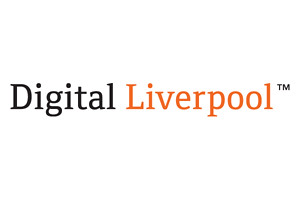Understanding copyright law has always been important in regards to web design and SEO, and it’s something that webmasters should be familiar with before they begin. However this is something that is now truer than ever with the advent of DMCA takedowns – the new Google policy that means sites can have their ranking damaged if someone complains that they are using copyrighted material.
But as a webmaster/writer are you familiar with the ins and outs of copyright law? And do you know all of the various angles that you need to consider? Her we will look at the basics of copyright law – what you own and for how long, and how to go about protecting your work. We’ll also look at what claims other webmasters can lay to their images and content and what you need to be careful about using. This will help you to protect yourself, to avoid legal issues and to avoid the whole DMCA takedown thing…
Copyright

Copyright covers narrative, stories and art and it’s something that is immediately called into effect. In other words if you draw a picture of a man fighting a lizard, then that image is immediately copyright and that means that no one else can use it. Likewise if you write an article on the state of technology, then that article too is immediately copyright and no one can take it off of your site. When you use a webmaster or a writer to help create content or art for your projects then normally you pay for the services as well as the copyright meaning you can treat it as though it is yours.
The only problem with copyright is that you need to be able to prove it – so don’t try to sue James Cameron because you once wrote a story similar to Avatar. Unless you can prove it, and show that they were inspired by your work that won’t be any use to you. On the other hand it’s rather easy to prove if you had an article up online before another site that has stolen it.
Article ‘spinning’ is a grey area, but generally puts you at risk of legal action and it’s just bad practice anyway – immoral and a quick way to damage your reputation and upset your viewers so just don’t go there. The only things you can use are old materials that have fallen back into the public domain or been opened up to the creative commons. Copyright expires 50 years after publication or 70 years after the creator’s death.
Certain things however can not be copyrighted – such as a car or such as a logo. We’ll come on to that…
Patent
A patent is intellectual property protection for an invention or an idea. This refers only to the way in which something works, not the idea itself. For instance you can patent the design of a specific chair that helps your back, but not the general aim of chairs that are good for you. The only way in which a patent might be useful to a webmaster could be to protect certain coding elements that allow the site to do something that other sites cannot. A patent however is not automatically in effect and to use one you will need a very good lawyer to organize it for you.
Meanwhile a patent will only last for twenty years, will only be relevant in certain countries, and will cost you a lot of money. Then there are the usual loopholes in patents that lead to the technology being used anyway. Your precise coding is protected by copyright anyway (though this is harder to prove) so generally you needn’t worry about this area.
Trademark

A trademark meanwhile refers to your logos, to your company name and to the names of your characters. Spider-Man is a trademark, as is Microsoft and Dr Octopus most likely. If you want to protect the name of your website or your business, or the characters and phrases you are coming up with, then you will need to register your trademark online or through another service. A trademark needs to be renewed every ten years, but unlike copyrights or patents can be kept going indefinitely as long as you still use the trademark to identify your goods and services. So you’ll never be able to use the character of Spider-Man to make a profit.
Charles Franklin is an expert SEO and internet marketer. You can read his blogs in smartpress.com


